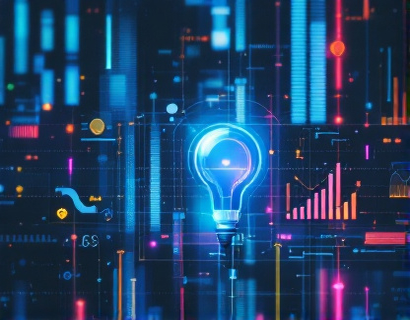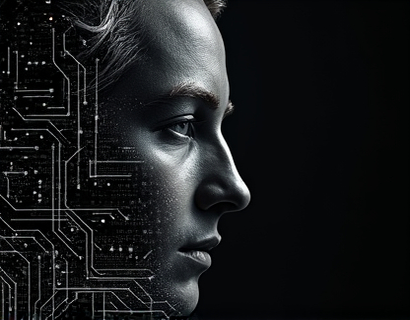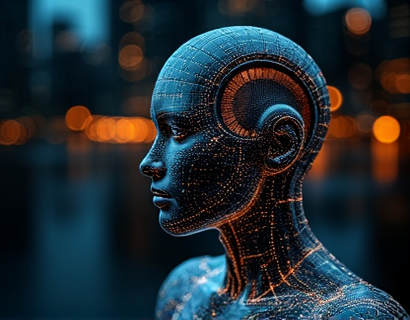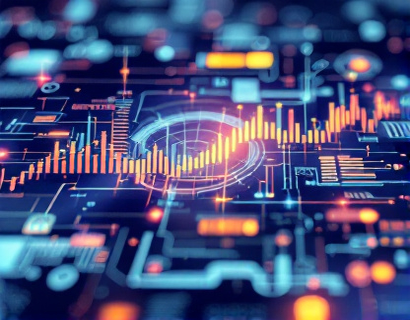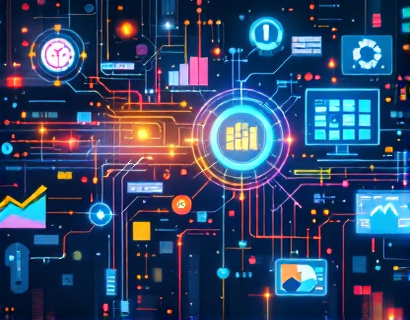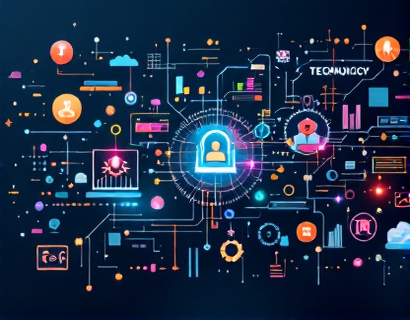Crypto and AI: Transforming Digital Experiences in the Blockchain Age
The intersection of cryptocurrency and artificial intelligence (AI) is ushering in a new era of digital transformation. This convergence is not just a technological curiosity but a powerful force reshaping how we interact with digital services, manage data, and conduct business. For tech leaders and early adopters, understanding and leveraging this synergy is crucial to staying competitive and innovative in the blockchain age.
The blockchain, the foundational technology behind cryptocurrencies, offers a decentralized, secure, and transparent way to conduct transactions and manage data. When combined with AI, which excels in processing vast amounts of data to uncover patterns, make predictions, and automate tasks, the potential for transformative applications becomes immense. This article delves into how the merging of cryptocurrency and AI is revolutionizing digital experiences and business operations, providing a comprehensive guide for navigating and thriving in this new landscape.
Enhanced Security Through Cryptographic Techniques
One of the most significant benefits of integrating AI with blockchain technology is the enhancement of security measures. AI algorithms can analyze patterns and anomalies in real-time, detecting potential security threats before they materialize. This proactive approach is particularly valuable in a decentralized environment where traditional security protocols may fall short.
Cryptographic techniques, inherent to blockchain, ensure that data is encrypted and tamper-proof. AI can optimize these processes by identifying vulnerabilities and suggesting improvements. For instance, machine learning models can predict and mitigate risks associated with smart contracts, ensuring that they execute as intended without unforeseen bugs or security loopholes.
Moreover, AI-driven identity verification systems can enhance the onboarding process for users, reducing the risk of fraud and ensuring compliance with regulatory standards. By combining cryptographic security with AI's analytical prowess, businesses can create more robust and trustworthy digital environments.
Optimized Data Management and Analytics
Data is the lifeblood of any modern business, and the blockchain provides a unique way to manage and verify data integrity. When AI is integrated into this ecosystem, the capabilities for data management and analytics are significantly amplified. AI algorithms can process and analyze large datasets stored on the blockchain, extracting valuable insights that would be impossible to discern manually.
For example, in supply chain management, AI can track the movement of goods in real-time, ensuring transparency and efficiency. By analyzing data from various points in the supply chain, AI can identify bottlenecks, predict delays, and optimize logistics. This not only improves operational efficiency but also enhances customer satisfaction by providing accurate and timely delivery information.
In the financial sector, AI-driven analytics can help detect fraudulent transactions and money laundering activities by analyzing patterns across multiple blockchain networks. This level of scrutiny is essential for maintaining the integrity of financial systems and protecting users' assets.
Automated Smart Contracts and Decentralized Applications
Smart contracts, self-executing contracts with the terms directly written into code, are a cornerstone of blockchain technology. When combined with AI, these contracts can become even more powerful and versatile. AI can enhance smart contracts by adding layers of intelligence that allow for more complex decision-making and adaptive behavior.
For instance, AI can enable smart contracts to learn from past transactions and adjust their parameters dynamically, ensuring optimal outcomes in various scenarios. This adaptability is particularly useful in decentralized finance (DeFi) applications, where automated trading, lending, and borrowing can be optimized based on real-time market conditions.
Decentralized applications (dApps) built on blockchain platforms can also benefit from AI integration. AI can enhance user experiences by personalizing content, recommending services, and automating routine tasks. For example, a decentralized social media platform could use AI to curate content based on user preferences, while also ensuring that the platform remains secure and decentralized.
Improved User Experiences Through Personalization
One of the most immediate and tangible benefits of combining cryptocurrency and AI is the ability to deliver highly personalized digital experiences. AI algorithms can analyze user behavior, preferences, and transaction history to create tailored recommendations and services.
In the context of blockchain-based platforms, this personalization can extend to financial services, entertainment, and e-commerce. For instance, a blockchain-based e-commerce platform could use AI to suggest products based on a user's past purchases and browsing history, all while ensuring that transactions are secure and transparent.
Moreover, AI-driven chatbots and virtual assistants can provide 24/7 customer support, handling queries and resolving issues in real-time. These AI-powered tools can operate on blockchain networks, ensuring that user data is secure and that interactions are verifiable and trustworthy.
Decentralized Identity and Privacy Solutions
Privacy and identity management are critical concerns in the digital age, and the combination of blockchain and AI offers innovative solutions. Blockchain provides a decentralized and secure way to store and manage identity data, while AI can enhance these systems by improving authentication processes and protecting user privacy.
AI-driven biometric verification, such as facial recognition or voice authentication, can be integrated with blockchain to create secure and user-friendly identity verification systems. This approach not only enhances security but also provides users with greater control over their personal data.
Additionally, AI can help in managing and protecting user privacy by detecting and mitigating data breaches and unauthorized access. By analyzing patterns and anomalies, AI can proactively identify potential threats and take preventive measures, ensuring that user data remains confidential and secure.
Challenges and Considerations
While the potential benefits of merging cryptocurrency and AI are significant, there are also challenges and considerations that must be addressed. One of the primary concerns is the regulatory landscape, as both blockchain and AI are still evolving fields with varying levels of regulation across different jurisdictions.
Businesses and developers need to stay informed about regulatory changes and ensure compliance to avoid legal issues. Additionally, the computational resources required for AI algorithms, especially those involving deep learning, can be substantial. Efficient resource management and the use of energy-efficient blockchain networks are essential to make these solutions sustainable.
Another consideration is the need for interoperability between different blockchain platforms and AI systems. Standardization and open protocols can help bridge these gaps, enabling seamless integration and collaboration across diverse technologies.
Future Outlook and Opportunities
The future of cryptocurrency and AI is bright, with numerous opportunities for innovation and growth. As technology continues to advance, we can expect to see more sophisticated applications that further blur the lines between these two fields.
One exciting area is the development of AI-powered decentralized autonomous organizations (DAOs), which combine the transparency and security of blockchain with the decision-making capabilities of AI. These DAOs can operate autonomously, making strategic decisions based on data-driven insights while ensuring accountability and transparency.
Another promising direction is the integration of AI with the Internet of Things (IoT) on blockchain networks. This combination can lead to smarter, more efficient, and secure IoT ecosystems, where devices can communicate and make decisions in a decentralized manner, all while ensuring data integrity and privacy.
In conclusion, the convergence of cryptocurrency and AI is transforming digital experiences and business operations in profound ways. By enhancing security, optimizing data management, enabling smart contracts, personalizing user experiences, and addressing privacy concerns, this synergy is paving the way for a more secure, efficient, and user-centric digital future. Tech leaders and early adopters who embrace these technologies will be well-positioned to thrive in the blockchain age.




